
Happy Friday, and hello again!
I last wrote to you in December, with a letter about my time at a healing retreat in New Mexico, where I was reporting a series about businesses that promise to transform their customers. My experience there, in the wake of a few months marked by some heartbreaking losses, was indeed transformative.
But here’s the thing. After publishing an essay that ended with a sort of reassurance that I would be okay, I was not, immediately, okay. I mean, I was okay. But I certainly wasn’t thriving.
Of course, events like the death of a close friend or the loss of a pregnancy can leave a person emotionally wrecked. But I wasn’t just sad. My focus was shot, I felt out of ideas, and my fuse was unrecognizably short. When a guy at the pool where I swim laps—usually my so-called happy place—accidentally thwacked me with his hand-paddle I stood up mid-stroke and declared: “What the fuck?”
Thankfully, everyone kept splashing along in their lanes as I ducked my burning cheeks back into the water and, as I had for months, just kept swimming.
Until I couldn’t anymore. Sometime in early December I slammed into a figurative wall, and requested a six-week personal leave from work. The decision came more from a place of desperation than deliberation. My request wasn’t painstakingly drafted. I had no plans for the time. I just knew I needed, for a minute, to stop swimming.
Ultimately, with the help of friends, family, and a couple professionals, I was able to do that. I recognize how fortunate I am to have this support network: a partner who encouraged me to take some time off, a job where I could make such a request, and the financial cushion to afford some unpaid leave. I sincerely hope if you need such a break, you’re in a position to take it. Leave or no leave, here are a few bits I learned while I was off work, that I hope to bring back with me.
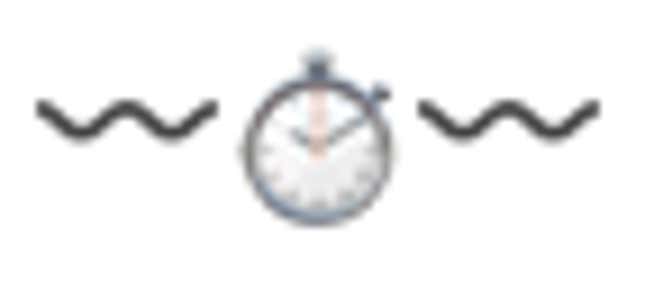
Ask for help. Because I had written articles about the struggles of the past few months, my request for “time to reset” didn’t require much explanation. Beyond approval from my bosses, I was relieved at how supportive people were of my break. Despite our productivity-obsessed society, I didn’t feel much stigma around stepping away. “Good for you,” said nearly everyone I told. “That’s so badass,” said one. “What are you going to do?” a few asked.
My reply was often: “Nothing.” I didn’t articulate that I needed time to heal. I’m not sure that I could have.
Doing nothing was harder than I anticipated. At first, I filled my time with the kind of doctor’s appointments that are easy to ignore when you’re healthy. I called friends in tricky time zones. I met out-of-towners for tacos and wandered through museum exhibits on off-hours. I found a therapist. And that was just the first two days.
Let go of the “shoulds.” All the aforementioned activities were things I felt I “should” be doing. And to be sure, I needed a therapist and this exhibit was fun. But after those first couple days, I found myself obsessing over how not to waste this precious time.
Which is how I drove one sunny Tuesday to a beach that’s usually too far from my Los Angeles home for a weekday, paddled out on my surfboard, and soon found myself unnerved by a ruffled patch of water. This actually wasn’t fun, I thought, as I paddled around the riptide and back to shore. There, I took out my book—Jenny Odell’s How to Do Nothing, natch—and read a few pages before I acknowledged to myself that I felt like garbage and wanted to go home.
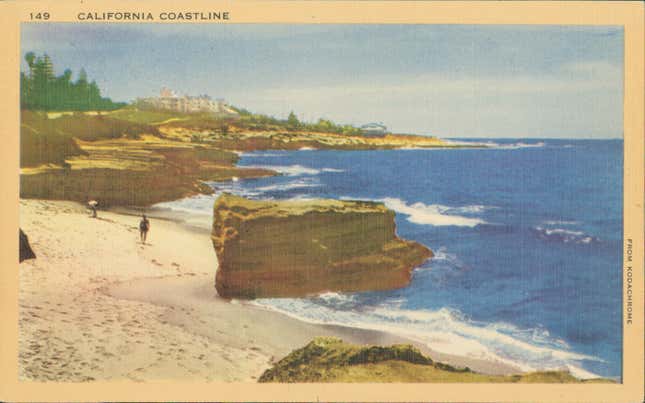
Are you feeling guilty, my new therapist asked later, because you’re enjoying yourself when you think you should be struggling? No! I said: I feel guilty because I’m struggling when I think I should be having fun. I’m alive and healthy; I’m off work; it’s 72° and sunny. What’s wrong with me?
She gave me two helpful bits of perspective. First, would you ever talk to a friend that way? Try to have at least as much compassion for yourself as you would for a pal in a similar position. And, second, let go of the “shoulds.” This time was meant for healing and resting, so … give it a rest. Stop worrying about what you should be doing, and just let it unfold a little.
Let it unfold. Once I followed that advice, I found myself spending more time in the kitchen than I had expected, mostly with the bread-making bible Flour, Water, Salt, Yeast. I had ignored the book for years, and took it off the shelf on a lark.
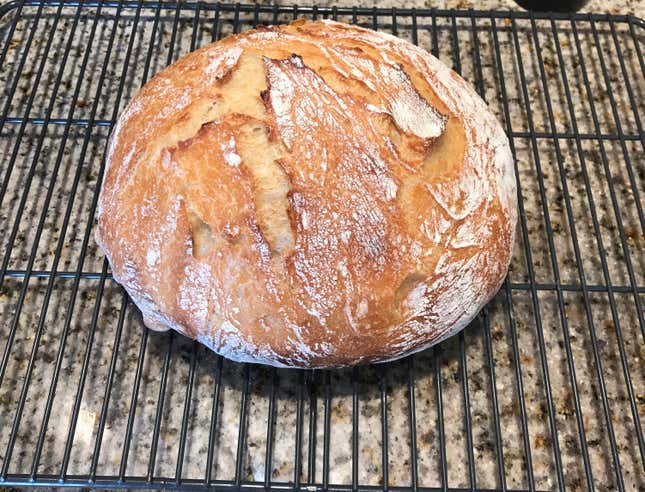
In the past, the book’s explicit instructions for mixing, folding, proofing, and baking dough over several hours felt too restrictive and time-consuming. Now, they were a comfort. They paced the day with small steps over long intervals, and gave it a backbone—albeit a flexible one. Plus, the stakes were low. If it flopped, I lost a little time and some inexpensive ingredients. If it went well (as it often did), we had great toast for a week.
Create some space, for whatever. While the dough was rising, I tried to just do what I pleased and take care of myself. I cleaned my desk drawers, one of which had literally collapsed beneath the weight of un-filed documents—but I also finished watching The Morning Show, (a slightly unhinged vehicle for Jennifer Aniston in outstanding outerwear), which there was no imperative to do. With a lull between a teeth-cleaning and acupuncture, I sat at a favorite breakfast spot and read, unhurried. Even when I enjoyed these things, I often felt sort of sad as I did them, and that was okay too.
Let others in. In the midst of all this solo time my sister, Sara, who lives in Western Australia with her three kiddos, ages 7, 12, and 14 called and said if I wanted to come visit in two weeks, that would be an excellent time. The kids were finishing their summer holidays, she’d taken the days off work, it was beach weather, and the bushfires were far away.
I paused. Shouldn’t I be solitary and contemplative, shoring up my strength at home? These days were already going so fast, and the break would be nearly done when I returned. But kids’ days go fast too, and when I closed my eyes and pictured them, the decision was easy. I even had credit card points for the airfare.
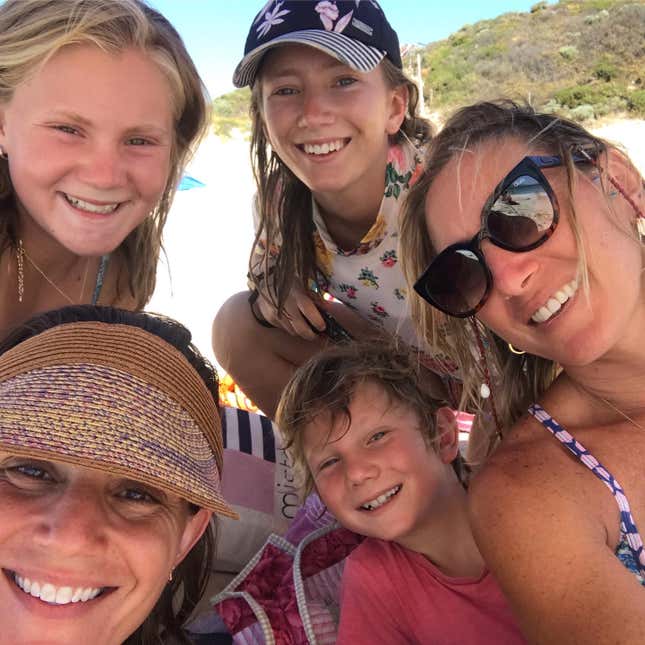
When I got there, we played at the beach, did puzzles, ate ice cream, watched the Australian Open, and swam until our fingers turned to raisins. In addition to the kiddos, I was delighted by Annie, their pug-cavalier-shih tzu, which is as silly as it sounds. Her tummy grazes the ground, her tongue is always out, and she’s not much for personal space. Her constant vibe is “thrilled to be included” and I could barely look at her without laughing.
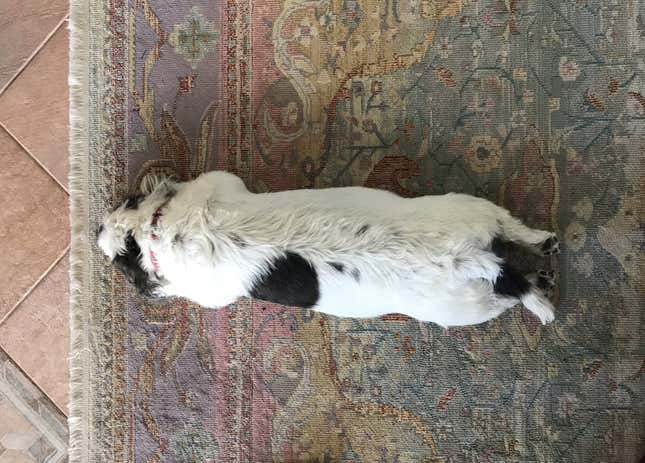
Enter Ozzie. After a week in Australia, I returned to Los Angeles, where I met another small, scruffy delight at a dog adoption event. A non-profit had rescued him the day of his scheduled euthanization at a county animal shelter, and after a couple of walks around the block, he curled up on my lap and went to sleep. The following night, he came home.
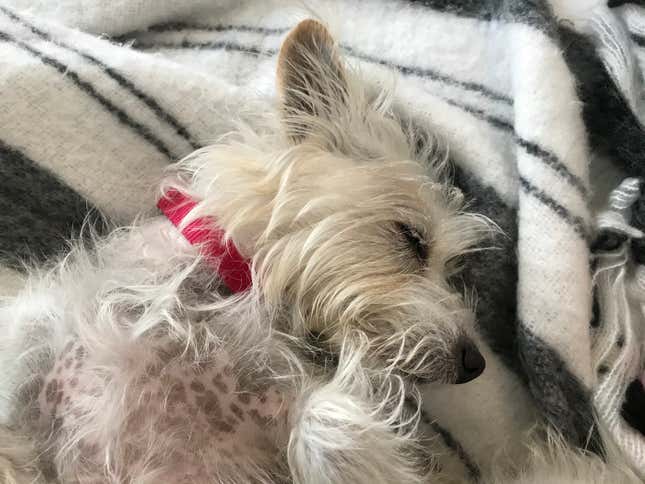
Ozzie, now snoring at my feet, has become a comfort and companion. We start our day with a jog and end it with a final walk and cuddle. He can be challenging—he still barks at everyone who enters our driveway, snarls if you try to take away a sidewalk snack, and is easily spooked. But we’re learning as we go. I’m constantly reminded by him to be patient. Healing is a process.
Have a great weekend!
[quartzy-signature]
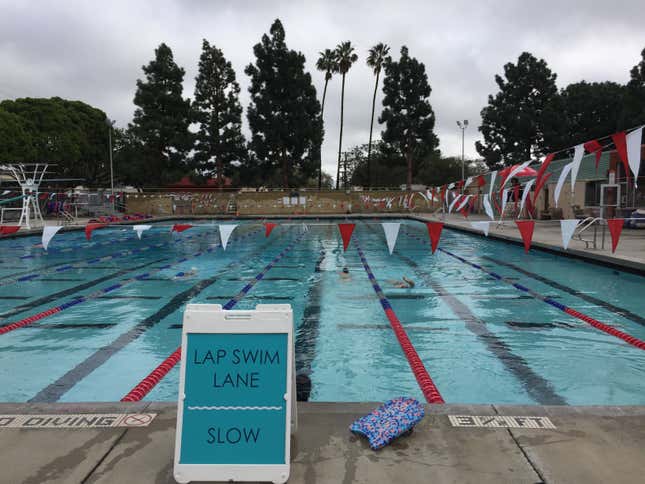
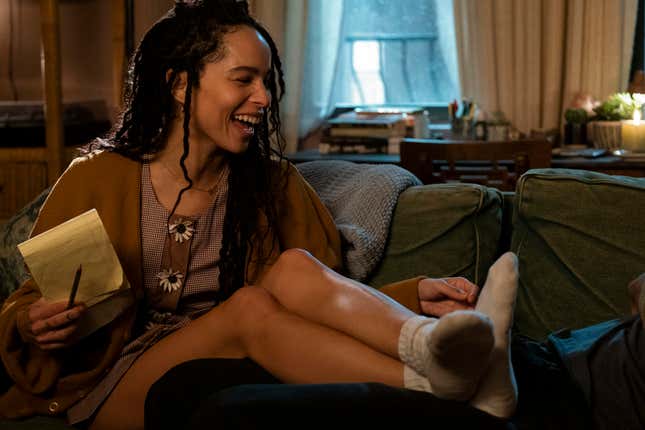
If you haven’t yet watched the High Fidelity reboot with Zoë Kravitz, get thee to a Hulu account. Although it takes place in the present, it’s full of New York City and 1990s nostalgia in the best way possible. The writing, casting, and acting are all on-point and Kravitz makes everything everything look so damn appealing. In under 30 minutes this show has made me consider making habits of Froot Loops, whiskey neat, and Hawaiian shirts, and reminded me how much I love the Replacements. And just wait until the episode with Parker Posey.